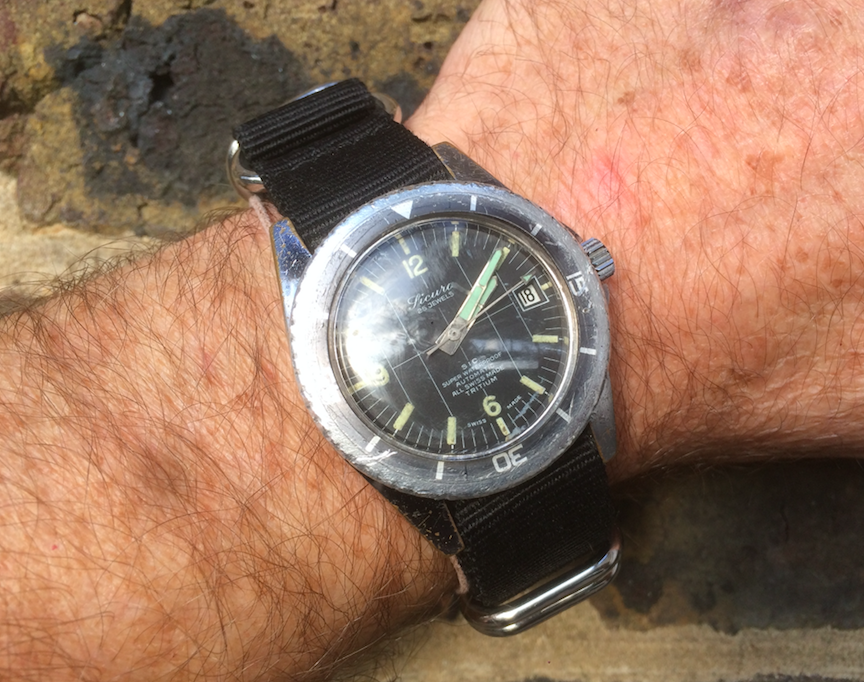
I’ve started buying old watches, notably old diver’s watches from the 1960s and 1970s.
They are generally cheap as chips, unless you pick a big brand. The one in the picture is a fairly obscure Sicura from the 1960s (probably). It’s rather worn, which is why I like it.
It cost me £110, so if it gets lost I wouldn’t lose sleep over it, although the more I wear it the more attached to it I become. If only I knew it’s history. Who wore it and where?
One of the best bits about the watch is it isn’t that great at telling the time. This one gains about 40-minutes a day, unless I wear it to bed, in which case the loss drops to 10-minutes depending upon how much I toss and turn in bed (it’s self-winding). The point is I always know roughly what time it is, and if it’s absolutely essential that I do something bang on time I can always look at the clock on my phone.
Anyway, I think there is something loosely liberating about not knowing the exact time.
What’s this got to do with the future? Nothing, except that if pushed I suppose one might start to ponder the nature of time and the relationship of past, present and future. And when is ‘future’ exactly? I was speaking with a friend and sci-fi writer Lavie Tidhar a while back and his working definition of ‘future’ was when things got weird. But that’s now surely? My own ‘future’ tends to be 10-15 years out, but personally I’m more focussed on the present these days. Anyway, the future was always a bit of an excuse to get people to engage more with the present.
As for clock watching, I think the purpose of clocks generally is to be prepared for future events. That’s possibly the worst load of mumbo jumbo I’ve ever muttered in a blog post.
